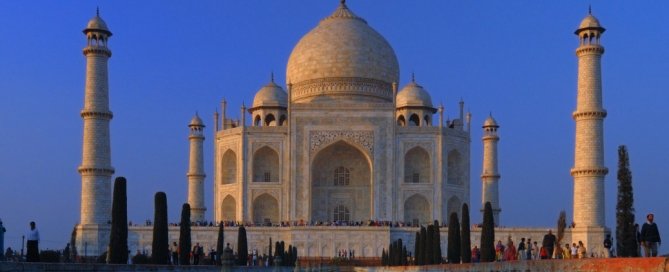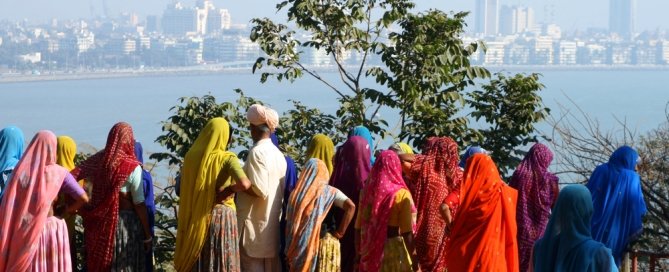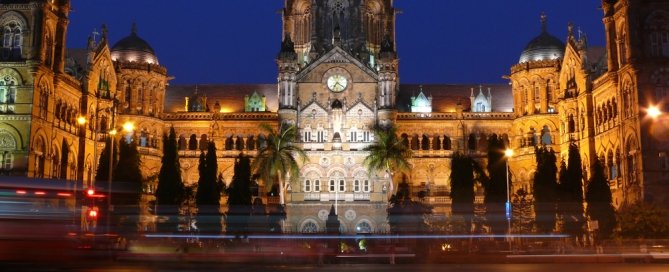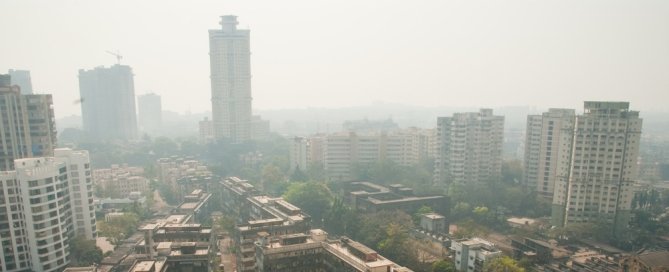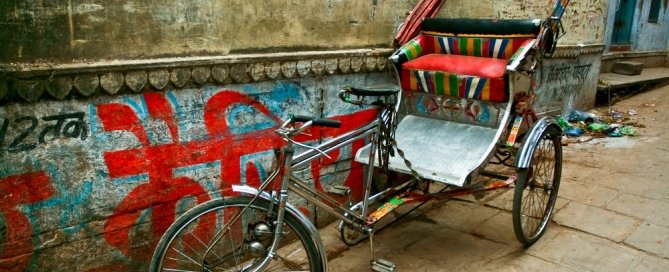Guide to India
Quick Facts
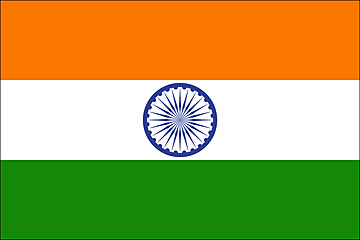
Population: 1.2 billion
Main Language: Hindi and English
Currency: Rupee
Calling Code: 91
Before the Common Era had begun, civilisations in the Indian subcontinent had already produced the sacred Hindu scriptures, witnessed the birth of Buddhism and formalised a caste system. The Indus Valley, stretching across the modern India-Pakistan border, saw the birth of multiple Hindu kingdoms after the invasion of the Huns, with South India retaining a strong Hindu culture and the North developing a contrasting Muslim character.
By the early 19th century, Britain had sole colonial power in India. Government institutions began to mirror British bureaucratic models and national production followed British demand. English even became the official administration language. However, serious challenges against British rule began to develop at the turn of the 20th century, and after decades worth of intense pressure, India finally gained independence in 1947. An independent India, however, did not mean a united India. The Muslim and Hindu factions called for division along religious lines, which ultimately led to separation from Pakistan.
Throughout the 1970s, ‘80s and ‘90s, India experienced a period of economic success as foreign investment levels and the number of educated professionals increased, and the Indian software industry emerged as the leading player internationally.
Capital City: New Delhi is an authentic melting pot, a shopping haven, a chaos of traffic that will shock the first-time visitor. If one manages to escape this sensation of constant movement and disarray, however, this great metropolis can be truly captivating. Ancient monuments, a thriving arts scene, world-famous restaurants and fantastic museums await, as do the medieval bazaars of Old Delhi. The newer party of the city has become a contrastingly posh attraction, with sleek cafe and bars abounding.
Government: India is a federal republic where Prime Minister Manmohan Sing serves as head of government and President Pratibha Devisingh Patil serves as chief of state. The cabinet is appointed by the president, who also appoints up to 12 members of the Council of States which, along with the People's Assembly, makes up a bicameral Parliament (Sansad). The government's judicial branch consists of the Supreme Court.
Culture: The Indian culture dates back over thousands of years. Practices such as yoga were established before 500 BC, when the philosophy and literature associated with Hinduism also emerged. Today, Indian culture spans a variety of religious, artistic and social traditions. Indeed, Hinduism, Islam and Christianity are only some of the major religions practiced in India, and writers such as the Bengali Rabindranath Tagore have elevated Indian literature internationally. Indian cuisine is no less world-renowned for its tandoori grilling techniques and unique spices.
On top of this, India is also home to ‘Bollywood'- the world renowned Hindi-language film industry based in Mumbai. The distinctive mixture of singing, dancing and acting is India's answer to Hollywood, and is gaining increasing recognition throughout the Western world. Bollywood actors are adored in India, only slightly less so than the top performers in the country's other great love- cricket. Cricket is played on every street throughout India, and the national team is always within the top few countries in the world. Stars such as Sachin Tendulkar are worshipped by millions of adoring fans throughout the country.
Indian Media
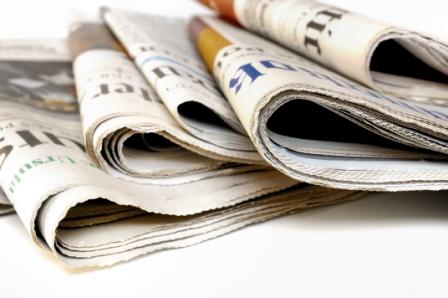 |
|


